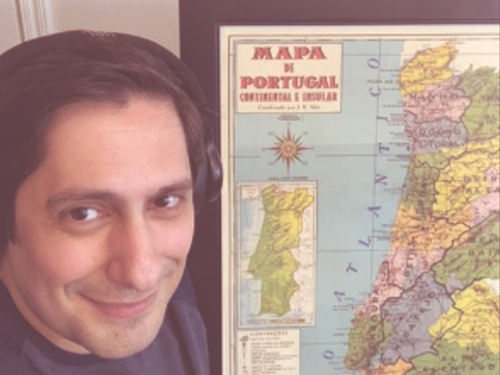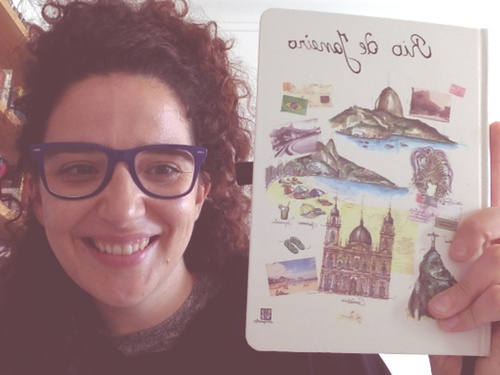G. and I were born in Portugal, we found out that our parents are from nearby lands, we are from Ribatejo. During our meeting we spoke mostly in Portuguese although he sometimes used English expressions because the translation didn't come to mind or at times, it was not enough for what he wanted to say.
We share 1 segment of the genome. We tried to find some family relationships that could show connections between our families, but it was very difficult. My grandparents have already died, and I don’t have much information about my family, especially as my maternal grandparents were illiterate, from a very poor background from the interior of Portugal. Many stories from that time weren’t written down, we just know what has been passed on from generation to generation.
G. took the test out of curiosity as he migrated to USA at the age of 10 and he wanted to try and find out if there were any close family members he could contact there. At the age of 10, he moved from a small village, a close and familiar community, to New Jersey, a more impersonal suburban neighborhood with a population density incomparable to that of the community where he was raised.
He told me that there is a time before and a time after, divided by the day he arrived at his grandparents' house and they said to him: "Tomorrow you are going to see your parents in the USA". He had not seen them for two years.
His parents migrated first, and his sister and him stayed with their grandparents in Portugal. Always waiting for the time when there would be news from their parents and for the moment when they would be able to be with them.
He told me that his only thought at the time was that he was finally going to see his parents again. But he did not imagine that in the next 5 years, missing Portugal and his extended family would make the relationship with the new place more difficult.
Going into a new school without understanding the language, making new friends was not easy ... to his friends in Portugal he said he wanted to return, but they said : “but you are in the country of opportunities, do not return to Portugal!”
I shared my story as a migrant in Brazil with him. I was already a 23 year old young adult when I migrated. I moved to Rio de Janeiro by myself, for 7 years which I now look back to with nostalgia. But, as G. told me, it seems that we miss the innocence of the time before moving and the nostalgia for that time can never be overcome. I migrated looking for a new experience but in 2011 that experience became a matter of survival thanks to the political crisis taking place in Portugal. Just like G.'s parents who looked for a better life, thanks to their spirit of adventure, we too changed our lives.
As G. said, “now everything is fine, but this will always be our story”.























